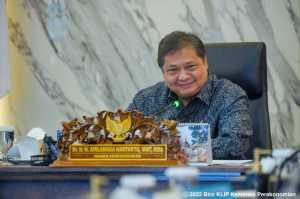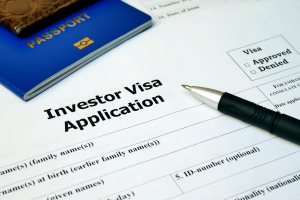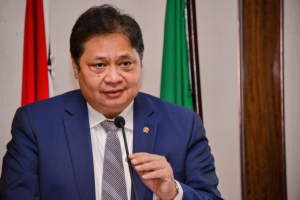Airlangga explores strengthened Indonesia-Canada economic ties in Vancouver visit
Coordinating Minister for the Economy, Airlangga Hartarto, explored opportunities for economic, trade, and investment cooperation during a meeting with Canadian business leaders in Vancouver on Friday, August 30, 2024.
Airlangga was on a working visit to the Canadian city at end of August to enhance bilateral relations, particularly to strengthen economic ties and explore investment opportunities between Indonesia and Canada, with a focus on the British Columbia region, which is strategically positioned near the Asia-Pacific.
During his visit, Airlangga met with Canadian business leaders to discuss a range of topics, including downstream industrialization and the challenges facing the middle class.
He highlighted Indonesia's robust economic growth amid global economic uncertainties.
“Indonesia's economy remains strong, supported by increased competitiveness, controlled inflation, and improving economic growth quality,” Airlangga stated in a written statement on Sunday, September 1, 2024.
Airlangga also addressed various strategic issues that pose future economic challenges, such as the demographic bonus, efforts to escape the middle-income trap, the energy transition to renewable and environmentally friendly energy, and the digital economy.
Additionally, he discussed the challenges of the Digital Economy Framework Agreement (DEFA), industrial downstreaming, critical minerals with the United States and China, the middle-class situation in Indonesia, and efforts to eradicate extreme poverty in the country.
Highlighting Indonesia's achievements in the digital economy, Airlangga noted, “In the digital economy sector, Indonesia is a leading startup player in ASEAN and ranks 6th globally, with the most innovative startups in ASEAN.”
Airlangga also elaborated on Indonesia’s International Economic Cooperation Map, covering various levels of cooperation: multilateral through the G20, regional through ASEAN, Asia-Pacific Economic Cooperation, negotiations under the Indonesia-European Union Comprehensive Economic Partnership Agreement, and the Indonesia-Canada Comprehensive Economic Partnership Agreement.
He touched upon regional cooperation frameworks in the Asia-Pacific, such as the Regional Comprehensive Economic Partnership Agreement, the Comprehensive and Progressive Agreement for Trans-Pacific Partnership (CP-TPP), and the Indo-Pacific Economic Framework.
Airlangga also discussed Indonesia’s ongoing accession process to become a member of the Organisation for Economic Co-operation and Development (OECD), including deliberations on joining the CP-TPP.
"Indonesia has expressed a desire to join the CP-TPP and is learning from the UK's recent accession," Airlangga noted.
To expedite the OECD accession process, Airlangga assured the formation of a national team involving various ministries and agencies. This team is responsible for conducting self-assessments and submitting an initial memorandum outlining Indonesia's alignment with OECD standards.
During the discussions, representatives of the Indonesian diaspora, including Luthfi Doffier and Matthew Riyanto from the Canada-Indonesia Chamber of Commerce, expressed their support by pledging to assist the Indonesian government in any way necessary to enhance cooperation with Canada.
Monica Khoe of Indigo Prima emphasized the need for efficient logistics to reduce costs, especially in light of the oversupply and price drops in some Indonesian agricultural products.
Erick Gunawan from the Indonesian Student Association in Canada inquired about Indonesia’s population growth and efforts toward achieving the Vision 2045 goal of a Golden Indonesia.
Airlangga’s visit to Vancouver underscores Indonesia’s commitment to deepening economic partnerships and exploring new avenues for collaboration with Canada, particularly in light of the growing significance of the Asia-Pacific region.
Already have an account? Sign In
-
Start reading
Freemium
-
Monthly Subscription
30% OFF$26.03
$37.19/MonthCancel anytime
This offer is open to all new subscribers!
Subscribe now -
Yearly Subscription
33% OFF$228.13
$340.5/YearCancel anytime
This offer is open to all new subscribers!
Subscribe now





